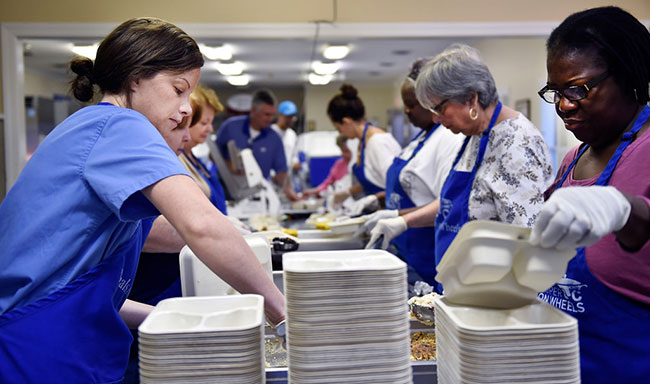
March 16, 2017; Politico
Today’s feature is a discussion of the new president’s strangely named “Budget Blueprint.”
White House budget chief Mick Mulvaney on Thursday defended the Trump administration’s proposed deep cuts to social welfare programs….“Meals on Wheels sounds great,” Mulvaney said during the White House news briefing, adding that “we’re not going to spend [money] on programs that cannot show that they actually deliver the promises that we’ve made to people.”
So, let’s get this straight. Making sure elderly people can eat – no outcomes there. Making use of legions of unpaid volunteers in that effort an affront to taxpayers. Mulvaney was not done:
Sign up for our free newsletters
Subscribe to NPQ's newsletters to have our top stories delivered directly to your inbox.
By signing up, you agree to our privacy policy and terms of use, and to receive messages from NPQ and our partners.
You’re only focusing on half of the equation, right? You’re focusing on recipients of the money. We’re trying to focus on both the recipients of the money and the folks who give us the money in the first place,” Mulvaney told reporters. “And I think it’s fairly compassionate to go to them and say, ‘Look, we’re not going to ask you for your hard-earned money anymore … unless we can guarantee to you that that money is actually going to be used in a proper function. And I think that is about as compassionate as you can get.
Some readers may remember a Nonprofit Quarterly piece by Bill Schambra entitled The Tyranny of Success: Nonprofits and Metrics in which he made an impassioned case for taking a more measured approach to the enthusiastic success/failure orientation being thrust on many nonprofit groups when much of their work consisted of “walking with” people who had real basic needs – in this case, food.
Oddly, in Mother Jones, Kevin Drum writes that the statement was less heartless than it appeared in that really what was being proposed at that moment was the elimination of the entire Community Development Block Grant (CDBG) budget which was only sometimes used by states to support Meals on Wheels programming. CDBG money, which Drum admits he knows nothing about, is critical money for many local communities, as is described in 2015 by Rick Cohen who believed it should be front and center on the nonprofit sector’s advocacy agenda at all times.
Take this from someone who used to oversee the allocation of CDBG funds for a mid-sized city. If there is a more important and more flexible resource for multifaceted community development available for community organizations around the nation, we haven’t seen it. Thoughtful municipal administrators can and sometimes actually do use their CDBG resources as a crucial tool in building and strengthening community-based nonprofits dedicated to long-term neighborhood revitalization. National Community Development Week should mean that the importance of CDBG funding potentially directed toward the programs and facilities ought to be ratcheted up on the nonprofit sector’s advocacy agenda, not just during Congress’s vacation week, but whenever human service nonprofits, housing and community development nonprofits, and their state nonprofit associations plan their own lobbying efforts.—Ruth McCambridge











